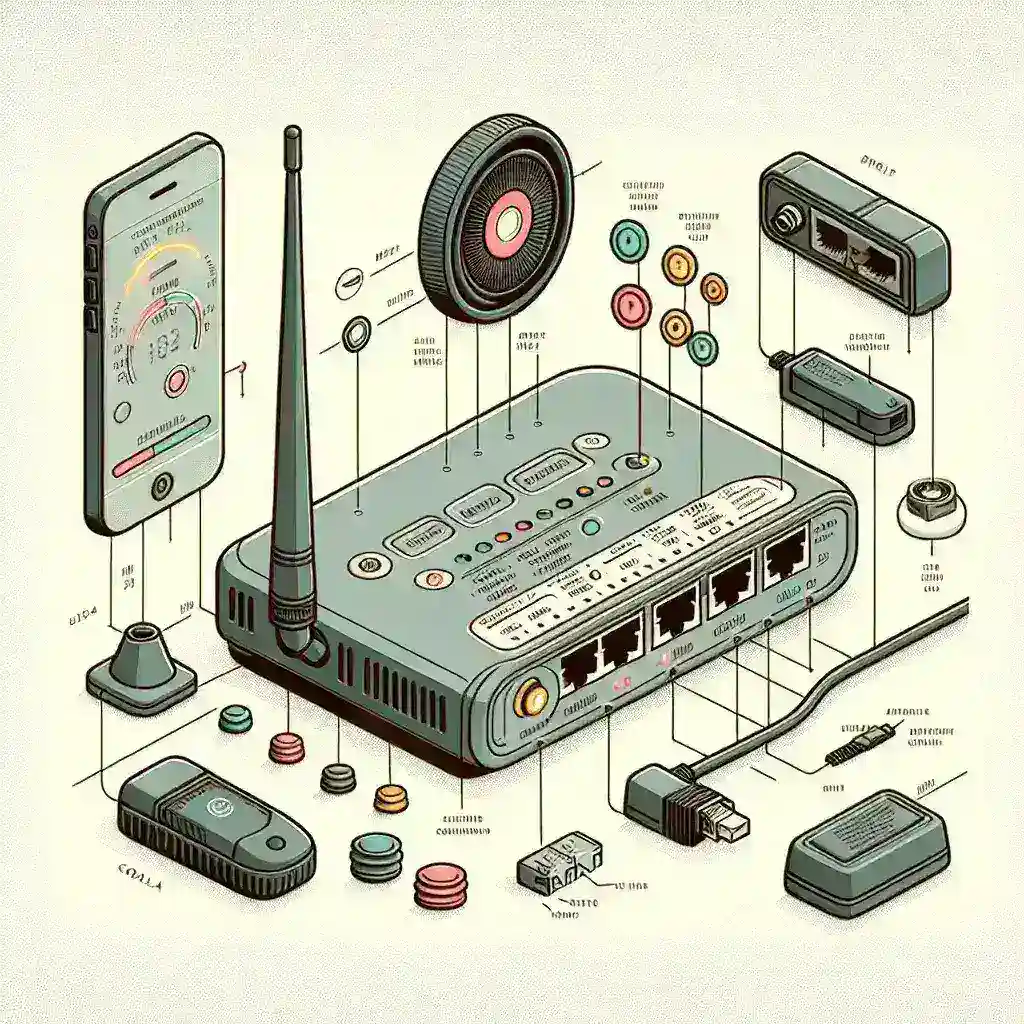Choosing the right modem can significantly impact your internet experience. Whether you are looking for a modem for your home or office, it is crucial to understand the key features that can make a difference. This article will guide you through the essential characteristics to consider when selecting a modem.
Compatibility
The first and foremost feature to look for in a modem is its compatibility with your Internet Service Provider (ISP). Different ISPs have specific requirements for the modems that can be used on their networks.
| ISP | Compatible Modem Brands |
|---|---|
| Comcast Xfinity | ARRIS, Netgear, Motorola |
| AT&T | Pace, ARRIS, Motorola |
| Verizon Fios | Actiontec, ARRIS |
| Spectrum | Netgear, ARRIS, Linksys |
Speed
Speed is another critical factor. Make sure the modem supports the speed tier of your internet plan. If your internet plan offers 500 Mbps, but your modem can only handle 300 Mbps, you won’t be able to utilize the full potential of your service.
Download and Upload Speeds
Modems display their maximum speed capabilities as download and upload speeds. Opt for DOCSIS 3.1 modems if you need high-speed internet.
- DOCSIS 3.0: Up to 1Gbps
- DOCSIS 3.1: Up to 10Gbps
Channel Bonding
Channel bonding is a technique used to increase data transfer rates. It combines multiple channels to improve speed and reliability.
Channels
Look for modems with higher channel bonding capabilities. The more channels, the faster the data transfer rates.
- 16×4: 16 download channels and 4 upload channels
- 32×8: 32 download channels and 8 upload channels
Security
Security features should not be overlooked. Ensure the modem supports security protocols to protect your network from unauthorized access.
Firewall and Encryption
Good modems come with built-in firewalls and encryption methods to secure data transmission.
- IPv6 Support
- WPA3 Encryption
Processor and RAM
The processor and RAM of the modem can also affect its performance. A powerful processor and sufficient RAM will ensure smooth and efficient data handling.
Performance Metrics
- Dual-core or higher processor
- 256MB RAM or more
External Ports
Consider the number and type of external ports available on the modem.
Ethernet Ports
Multiple Gigabit Ethernet ports are essential for connecting various devices directly to the modem.
- 1 Gigabit Ethernet Port
- 2 or more Gigabit Ethernet Ports
Price
Price is an essential factor but should be balanced against features and performance.
Cost vs. Benefit
While it might be tempting to go for the cheapest option, investing a bit more can provide better speed, security, and reliability.
- $50 – $100: Basic modems for small households
- $100 – $200: Advanced modems with better speed and additional features
- $200 and above: High-end modems for heavy internet users and gaming
Future-Proofing
Lastly, consider future-proofing your modem. Opt for a model that can handle upcoming technological advancements and higher speeds to avoid frequent upgrades.
Support for New Technologies
Ensure it supports the latest technologies like DOCSIS 3.1 and IPv6.
- DOCSIS 3.1 compatibility
- IPv6 support
By understanding these key features, you can make an informed decision and choose a modem that best suits your internet needs.

